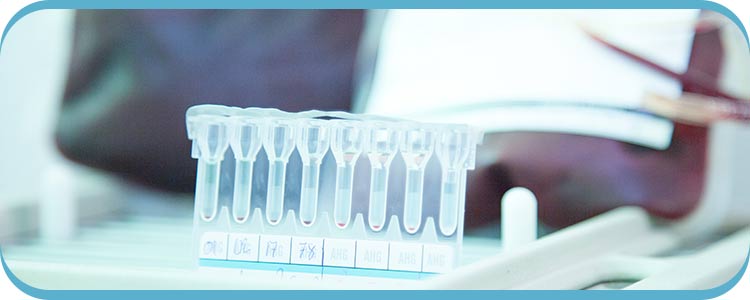Confidential STI Testing Specialist in Henderson, NV
Protecting your sexual health is essential. Our specialist, Andrea Warburton MSPHS, PA-C, at Sunset Hills Family Practice offers confidential STI testing with discreet, accurate screenings in a comfortable setting. Trust us for quick results and professional care to protect your health. Early detection and treatment of STIs are crucial for preventing complications and spreading infection. For more information, contact us today or schedule an appointment online. We are conveniently located at 2510 Wigwam Parkway, Suite 102, Henderson, NV 89074.


Table of Content:
How do you test for STIs?
What do STI tests check for?
How soon can you see symptoms of an STI?
Numerous tests may be performed to confirm whether a sexually transmitted infection (STI) is present. A health care provider may be able to identify certain STIs just by visually examining the external genitalia. These can include genital herpes, syphilis, and human papillomavirus (HPV). A doctor may palpate the penis and testicles to check for pain or discharge in males.
In women, a tool called a speculum may be inserted into the vagina; this tool spreads the walls of the vagina so a physician can visually inspect the interior for any abnormal signs. Alternatively, a swab may be taken from the inside of the vagina or the urethral opening of a penis.
Swab tests are used to diagnose HPV, herpes, chlamydia, and gonorrhea. You may also be asked to provide a urine sample to test for trichomoniasis or gonorrhea. A blood test could also be performed, testing for herpes, syphilis, and human immunodeficiency virus (HIV).
Urine STI tests are usually used to determine if bacteria associated with specific conditions are in the urine. A similar process occurs in swab testing. In the instance of a blood test, a lab technician will look for particular signs of an immune system reaction to the infection. This may include the detection of specific antibodies or proteins that fight infection.
There are many different kinds of sexually transmitted infections, and the majority of cases are often asymptomatic, so many patients are not aware they have the condition. Though STIs have similar symptoms, there are a few differences to pay attention to.
Chlamydia is mostly asymptomatic, though men have a higher chance of experiencing symptoms. If you experience symptoms, they will most likely arise within one to three weeks of infection. Signs of chlamydia include pain during urination, bleeding between periods, and discharge. In men, this discharge appears thin and cloudy, while in women, it is usually a white-yellow color that smells odorous.
Most women with gonorrhea do not experience symptoms, whereas most men will. Signs of this condition typically occur a couple of weeks after exposure. They include the following: pain during urination, bleeding between periods, thick discharge that is a green-yellow color, and pain in the pelvic region or testicles. If the infection spreads to the anus, you may notice discharge here, in addition to itching and strain during bowel movements.
Trichomoniasis is another predominantly asymptomatic STI, though women are more likely to experience symptoms than men. Signs may appear within one to four weeks of infection, or it can go unnoticed for months before anything abnormal occurs. Symptoms of trich include burning pain during urination, genital itchiness and redness, and discharge that is thin, often yellow, and has a distinct fishy odor.
Approximately half of those who have a syphilis infection will not experience symptoms. If symptoms do occur, they will likely happen within a month, though it may take months for some others.
The progression of this STI is generally divided into four stages: primary, secondary, latent, and tertiary. In the primary stage, we see the development of sores. Often, a singular sore will break out and be mistaken for a pimple or an ingrown hair. In the secondary stage, a rash can spread beyond the genitals to the hands, feet, and other body areas. This rash is not typically itchy, though it is associated with flu-like symptoms such as fatigue and fever. The latent stage can last years up to decades and is characterized by a dormant state where the infection does not cause any symptoms.
HIV is like syphilis in that it has a latent stage and may lie dormant for years. If HIV is left untreated, it can develop into acquired immunodeficiency syndrome (AIDS) and affect numerous body functions. For this reason, the list of HIV symptoms is extensive. HPV is also often asymptomatic; however, this infection may clear before you even notice you had it. Otherwise, it may take months before symptoms appear.
Most commonly, HPV is associated with “warts,” which may look like skin-colored, brown, or pink areas of swelling that may bleed during intercourse and are generally uncomfortable and itchy. If there are many warts in a group, the collection may have a cauliflower-like texture. Herpes, similar to other STIs, is mostly asymptomatic, though if symptoms do appear, it will usually occur within the first few days of exposure, up to a couple of weeks.
Herpes sores are unique, as they seem to be small red or white blisters that can rupture and develop into an ulcer. These ulcers will likely bleed, and thus scabs will form. In addition, you may also experience pain or itching.
Suppose you believe you have contracted a sexually transmitted infection (STI). In that case, Sunset Hills Family Practice can help, as we offer the testing, diagnosis, and treatment of these concerns, along with many others. Our comprehensive list of services ensures all of your health care needs are met.
With our extraordinary health care staff and specialized physicians who have many years of experience in primary medicine, we guarantee that your health is safe in our hands. We are dedicated to providing you with the best patient care possible that is both accessible and affordable, so please, do not hesitate to contact our office. Appointments can be scheduled online or over the phone. Additionally, we offer telehealth visits, in which you can speak with one of our doctors over a video or audio call. We serve patients from Henderson NV, Midway NV, Paradise Hills NV, Gibson Springs NV, Whitney NV, Boulder City NV, Winchester NV, and surrounding areas.




